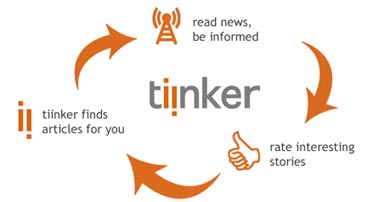We give developers the opportunity to tell us journalists why we should sit up and pay attention to the sites and devices they are working on. Today, it’s indexing interviews across the web from Access Interviews.
1) Who are you and what’s it all about?
My name is Rob McGibbon and I am a freelance journalist with a background in writing – mainly celebrity interviews – for various national titles. I launched Access Interviews.com in January 2008 after two years of development.
The website provides a unique index to the world’s interviews with subjects of all kinds and in every category. AI is a totally original concept, which is not bad going in such a crowded web world!
The site works on an open editorial platform. Web editors on newspapers and magazines and individual journalists submit links to the interviews, which they have published on their own websites.
Access Interviews does not carry the actual content but instead links back to the copyright owner’s website and automatically maintains a full searchable archive of the links to interviews that are submitted.
2) Why would this be useful to a journalist?
It is useful in many ways to journalists. It is ideal for research because Access Interviews only carries genuine, professionally sourced interviews.
This material is often the most important for a journalist. You can save a lot of time you might otherwise waste on Google by going to AI first.
Access Interviews is also a great tool for journalists and publishers to promote their work. Individual writers can create a portfolio of their interviews, which is particularly useful for freelance journalists who work across a number of titles.
Newspapers or magazines can also promote their archives as a way of drawing new readers to their website or hard copy.
Some magazines and provincial newspapers have small circulations but get great access to high profile personalities because of the credibility of the publication.
Our website is a powerful independent platform to showcase exclusive work and bring a new audience to the work of smaller publications.
The AI site is also the perfect way of establishing the true origin and copyright of an interview. This is incredibly useful for journalists who originate so much material, only to see it ripped off in this digital world.
3) Is this it, or is there more to come?
I am already developing three other websites that will be launched later this year, but the priority is to get Access Interviews fully established and being used by the journalists.
There are already extensive plans to expand AI, so this is my focus.
4) Why are you doing this?
More is definitely not always best and the internet is living proof. It is congested with worthless and often inaccurate content. Interviews are the golden source of content and I want to create a 24-carat resource for journalists and to generally promote the value of the professional interview.
5) What does it cost to use it?
It is free to use and there is no need to register. Click and go. How can you resist?
6) How will you make it pay?
Regretfully, the money side is very much phase two. I expect any business-minded person would hear me say that and scream or laugh.
Essentially, my plan is to make a great website that becomes indispensable to journalists and users generally. By doing this, Access Interviews will have a powerful readership which, in turn, will make it an interesting proposition for big brand advertisers.

